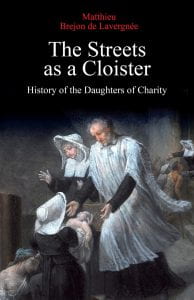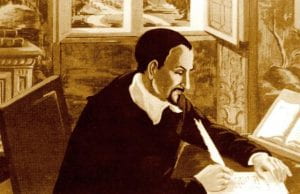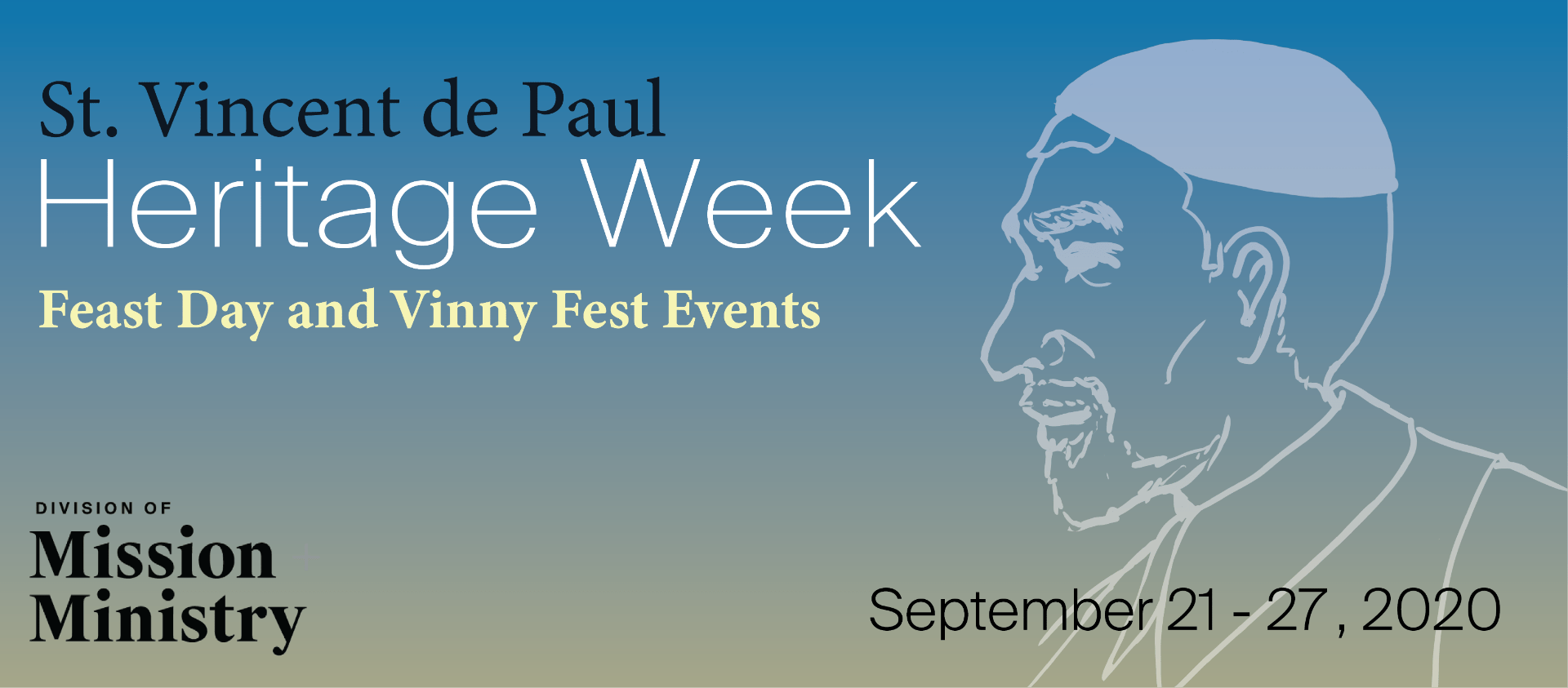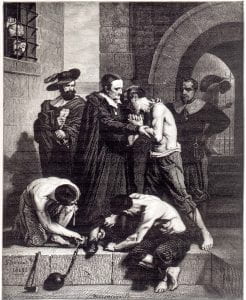 Our patron saint, Vincent de Paul, often spoke of cultivating virtues. He believed virtues develop in us through regular and habitual actions. Vincent’s understanding corresponds to an often-quoted piece of popular wisdom that it is easier to walk your way into a new way of thinking than to think your way into a new way of walking. Vincent clearly had a bias for action. It is not what you think but what you do that is ultimately the most meaningful and consequential.
Our patron saint, Vincent de Paul, often spoke of cultivating virtues. He believed virtues develop in us through regular and habitual actions. Vincent’s understanding corresponds to an often-quoted piece of popular wisdom that it is easier to walk your way into a new way of thinking than to think your way into a new way of walking. Vincent clearly had a bias for action. It is not what you think but what you do that is ultimately the most meaningful and consequential.
In light of this, consider the virtue of gratitude. The regular practice of gratitude has been shown to improve physical health, empathy, self-esteem, sleep, psychological health, mental strength, and help you build social connections.1 Better yet, even if you are a person who struggles to feel or express gratitude easily and freely, it is a habit that can be learned and cultivated with practice at any age.
Cultivating gratitude requires the humility to acknowledge that many of the gifts and opportunities in our lives have come to us through others: those who currently grace our lives, as well those who came before us. It may be true that we have worked extremely hard and overcome a lot to get where we are. We can certainly feel proud of our accomplishments. Yet, such pride is not gratitude. We discover and develop gratitude when we humbly recognize the blessings in our lives that make clear our dependence or interdependence on others, or on a divine source beyond us all. Perhaps such gratitude is found when experiencing the natural beauty of the earth, the wonder of the sun and the stars, the generosity of others, or the beautiful uniqueness of a newborn child. For such gifts, we stand in awe and gratitude.
However, this recognition is only part of the process. Taking time to savor our experience of gratitude lights up the brain and warms the heart with positive physical and psychological effects. The full benefit only comes when we communicate our gratitude to those who made these gifts possible. Whether doing so verbally, in writing, or in physical acts of expressing thanks to others, the full power and positive impact of gratitude is realized.
From his religious worldview, Vincent de Paul understood that God is the giver of all gifts, which flow abundantly from a generous love and goodness, and a self-gift made known in the person of Jesus. Vincent expressed the desire “that God may give us the spirit of profound gratitude for so many benefits bestowed on us.…”2
As we approach this Thanksgiving season, may we be filled with gratitude for the gifts we have received, so that we, too, might become a gift for others.
Action:
Take a moment to ponder or hold in your heart one person or one recent experience for whom or for which you are especially grateful today. How does it feel to remember this gift? Is there anything about what you have received that can be passed on and shared with someone else? If so, do it today!
1) A summary of research on various positive impacts of the practice of gratitude can be found here: 7 Scientifically Proven Benefits of Gratitude
2) Letter 1705, To Charles Ozenne, Superior, In Warsaw, 13 February 1654, CCD, 5:81.
Reflection by: Mark Laboe, Associate VP, Division of Mission and Ministry







